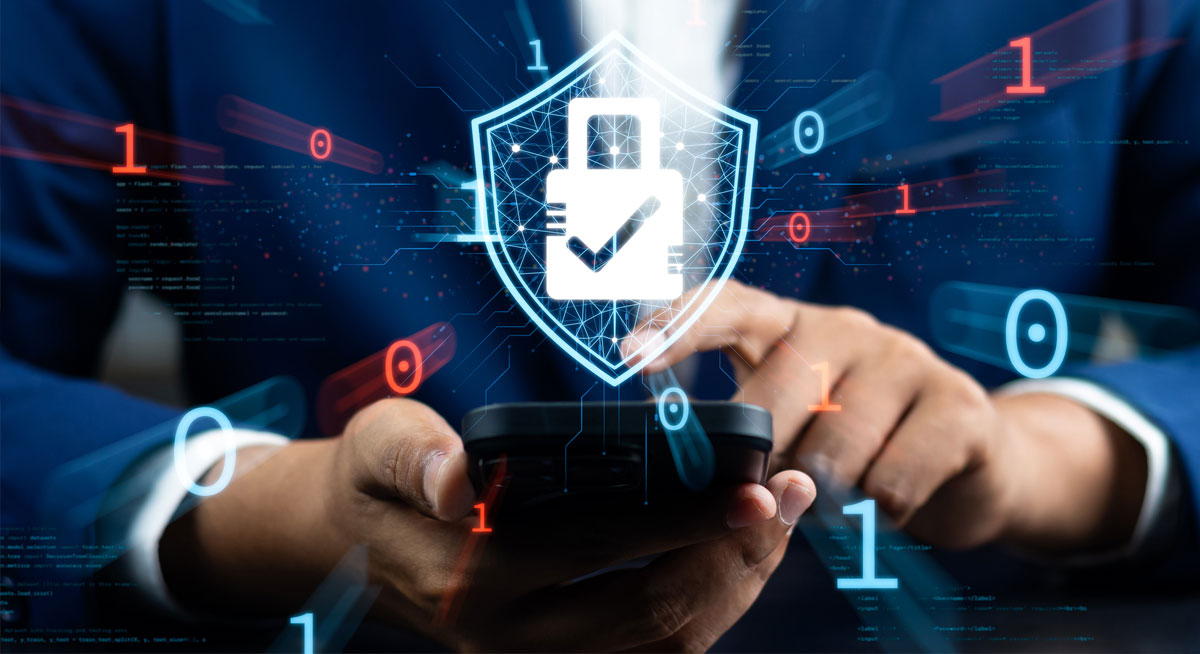Cybersecurity - Why It Matters!
Why Small Business Must Address Cybersecurity
- Small businesses are three times more likely to be attacked by cyber-criminals compared to large businesses, cloud security firm Barracuda Networks has found.
- An estimated 81% of company data breaches are caused by poor passwords. (TraceSecurity)
- The average cost of a data breach reached an all-time high in 2023 of $4.45 million, a 15.3% increase from 2020. (IBM, 2023)
- Organizations with fewer than 500 employees reported that the average impact of a data breach increased from $2.92 million to $3.31 million — a 13.4% increase. (IBM, 2023)
- Cyberattacks using stolen or compromised credentials increased 71% year-over-year. (IBM X-Force, 2024)
- 98% of organizations have at least one third-party vendor that has suffered a data breach. (SecurityScorecard)
Helpful Resources
As a business owner, it's important to understand the risks of operating online and to have a plan in place to protect yourself, your customers, and your data from cyber threats. The Federal Communications Commission (FCC) recognizes the importance of cybersecurity for small businesses and has created resources to help you develop a customized plan. In October 2012, the FCC re-launched the Small Biz Cyber Planner 2.0, an online tool to help small businesses create a plan that works for them. The FCC also released an updated one-page Cybersecurity Tip Sheet with new tips on creating a mobile device action plan and on payment and credit card security.
Below is a summary of the FCC’s 10 cybersecurity tips for small businesses:
- Train your employees in security principles.
- Protect your information, computers, and networks from cyber attacks.
- Implement firewall security for your Internet connection.
- Create a mobile device action plan.
- Make backup copies of important business data and information.
- Control physical access to your computers.
- Create user accounts for each employee.
- Secure your Wi-Fi networks.
- Employ best practices when handling payment cards.
- Use secure passwords and change them regularly.
- Stay informed about cybersecurity threats and updates.
By following these tips and utilizing the resources provided by the FCC, you can create a culture of security that will enhance business and consumer confidence and protect your business from cyber threats.
View the complete FCC Cyber Security tip list here.
Further Insights Into The Issues:
Learn why Cybersecurity is a necessary risk mitigation measure for your business.

Optimize Your Credentials Manager
Using a credentials manager is crucial for improving the security of online credentials. However, optimizing its settings is essential to fully protect sensitive information. This article provides expert tips on how to configure your credentials manager to enhance security and efficiency, focusing on new features in the latest Passpack release to help manage and share passwords to credentials securely.

Why IT Companies Should Partner with Passpack
A password manager for IT companies is an essential tool to safeguard credentials, prevent data breaches, and streamline access management. Passpack offers a powerful solution tailored to the specific needs of IT professionals, ensuring secure password creation, storage, and sharing for both internal use and on behalf of clients.

The Risks of Storing Passwords in Your Web Browser
Storing passwords directly in web browsers may seem convenient, but it exposes users to significant security risks. Understanding these risks and exploring safer alternatives, such as using dedicated password manager applications, is essential for protecting sensitive information.

Defending Against Brute Force Attacks
Brute force attacks are a significant cybersecurity threat where hackers use various methods to crack passwords and gain unauthorized access to systems. This article explores different types of brute force attacks and provides strategies to protect your organization, including the use of advanced password management tools like Passpack.

Can You Trust the Principle of Least Privilege?
The principle of least privilege is a fundamental concept in cybersecurity that ensures users and systems only have the minimum necessary access to perform their job functions, thereby reducing potential damage from security breaches.

Crossing Borders with Personal and Confidential Information
Crossing borders with personal information is a growing concern as customs and border agents increasingly scrutinize digital devices. Understanding the risks and taking proactive measures to safeguard your data is crucial for protecting your privacy and your organization’s information during international travel.